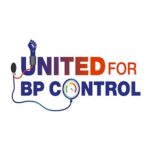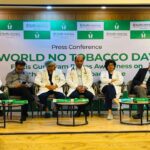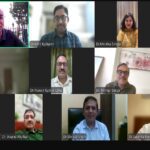UN Security Council meeting on the Ebola Outbreak in North Kivu, DRC
New York City, USA
October 04, 2018 :
Mr President, distinguished representatives of the Security Council,
Greetings from Geneva, and thank you for the opportunity of briefing you on the status of the Ebola outbreak in the Democratic Republic of the Congo.
I last briefed you in late August, just a few weeks after I had visited Mangina, which was then the epicentre of the outbreak. I also visited Beni, which is the current epicentre and the base of our operations.
I said then that I had returned from DRC more worried than before I went. I’m still worried.
When you visit DRC in the coming days, you will see with your own eyes the extraordinary challenges we face, and the equally extraordinary measures that the government, WHO and our partners are taking to bring this outbreak to an end.
You will also see that we are now at a critical point in the outbreak.
I’d like to start today by giving you a brief update of the status of the outbreak and the response to it, before describing the challenges we are facing.
So far there are a total of 161 confirmed and probable cases, and 106 deaths. There are 45 survivors and several people still under care.
The response to the outbreak is being led by the Government of the DRC, which is doing an outstanding job in an extremely difficult situation.
The government is providing strong leadership and exemplary transparency – they are reporting daily on the status of the outbreak.
WHO has more than 200 staff on the ground, operating out of four hubs.
We’re also working very closely with MONUSCO, which is providing excellent support in an extremely challenging and dangerous environment.
And we are working with numerous partners in the Global Outbreak Alert and Response Network in a coordinated way, under the government’s leadership. So far, more than 13,700 people have been vaccinated using a ring vaccination strategy, and 47 people have been treated with investigational therapeutics.
I’m pleased to report that all 3 levels of WHO are well-aligned and working in harmony, from the country office to the regional office and headquarters. Most of our response staff come from the DRC Country Office and other duty stations throughout Africa. Now let me describe some of the barriers we are facing.
First, the security situation. Even when I was in Beni at the beginning of the outbreak, there was an attack just 15 kilometres from the town. Since then there has been an increase in the frequency and intensity of attacks by armed groups in very close vicinity to Beni.
These include a full-scale attack on the DRC armed forces base on 24 August, ambushes on MONUSCO on September 3 and 9, a rocket explosion in the centre of Beni on September 11 and an indiscriminate attack on Beni town just 10 days ago, on September 22.
As a result of the most recent attacks, which killed 21 people, our operations were in lockdown for several days. But when we’re in lockdown, you know Ebola is not. Ebola gets an advantage. We have taken every possible measure to ensure that WHO staff are kept safe, but as we deploy more staff to the field, the risks increase of an accident, or a kidnapping, or one of our colleagues simply being in the wrong place at the wrong time.
The second significant barrier we are facing is pockets of mistrust within some families. Community engagement is a critical part of any outbreak response and in general, we have been successful in engaging the community about how to prevent the transmission of Ebola.
But we are now seeing pockets of community mistrust, especially around a village called Ndindi, which is where many of the most recent cases have occurred. Small but significant numbers of people refuse active follow-up, or refuse to be treated in the Ebola treatment units.
We are working closely with religious leaders, youth and women’s groups and with the families themselves to overcome this obstacle.
For all of those reasons, last Friday we increased our assessment of the risk of regional spread from high to very high. We are very concerned about the potential for the virus to spread into Uganda, but also into Rwanda, South Sudan and Burundi. We are working very closely with those governments on operational readiness for Ebola. We still regard the risk of international spread outside Africa as low.
We have two main requests today.
First, we repeat our appeal to the Security Council to exercise every ounce of influence it has to ensure full, uninterrupted access to the affected areas, and to protect both the people of the region who are at risk of Ebola, and the responders who are trying to prevent the epidemic from continuing to spread.
The security situation is to the advantage of the virus – any hampering of the response allows the virus to spread unchecked. And that is a risk for all of us. We still remember the damage that happened by the Ebola virus in 2014-15 in West Africa.
And second, we thank all our international partners who responded to our first call for funding. It’s now important to mobilise further funding for regional preparedness, particularly in Uganda but also in other neighbouring countries. To date, we have pledges for US $8 million out of a request for US $33 million for this critical work.
Rest assured that we are working around the clock on the response, and doing everything within our power to bring this epidemic to an end. I am personally engaged in the response on a daily and sometimes hourly basis, because it’s health security.
Finally, I would like to highlight the fact that this epidemic is occurring in the context of much wider humanitarian needs, in a country whose people have suffered enormously over several decades.
Thanks again for the opportunity of this briefing. I would be glad to answer any questions that you may have.
Merci beaucoup.







